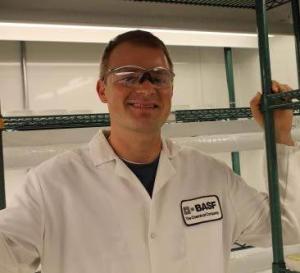Patrick Walker
Associate Scientist – Crop Pipelines, BASF Plant Science
Expert Bio
Patrick received his Bachelor of Science degrees in Biological Sciences and Plant Biology from North Carolina State University in 2008.
Patrick is currently working as a scientist in GB’s Maize Production lab within the Crop Pipelines function in Research Triangle Park. His duties involve utilizing in vitro (tissue culture) techniques to genetically modify and culture maize, primarily for the Fungal Resistant Corn project.
Prior to his career in Crop (Maize) Transformation at BASF, he spent over a year and a half working in Plant Metabolomics at NCSU studying plant secondary metabolites.
Studies, Articles and Answers
Showing 1 out of 1 results
Question
A: I have been working in the plant biotechnology industry now for a little over three years and I find it fascinating that scientists are able to identify genes and genetically modify plants in order to meet global food, feed and energy demands. Corn, as many of you might know, is one of the most important cereal crops produced in the world. Corn is used as a main source of food for both humans and livestock and is also the leading crop used for bio-energy production. Here at BASF Plant Science, we have many projects that aim to identify particular genes that may enhance a plant’s abil [...]
A: This is a great question that really gets at the foundation of what I do in my job. When researchers make changes to the genetic make-up of a plant such as turning off an existing gene or adding a gene from another source to create a new, desirable characteristic (or trait), the resulting plants are considered GMOs. The process starts by defining the desired trait. For example, we might want to improve how a plant protects itself from insects, make a plant herbicide tolerant or increase the likelihood a plant will grow and yield in drought conditions. In order to find genes that have the desir [...]
